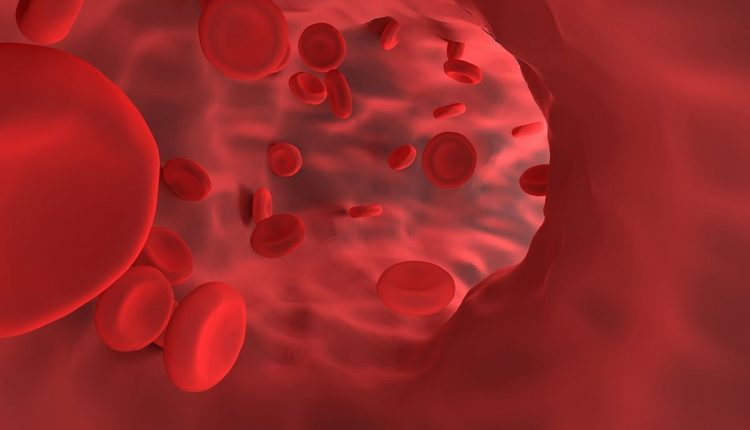
Antiplatelet agents: trade names, side effects
Antiplatelet drugs (also called antiplatelet or antiplatelet drugs) are a group of drugs capable of negatively interacting with platelet aggregation function, thus preventing the formation of thrombi and emboli of thrombotic origin
These drugs are therefore useful in patients who have a high risk of thrombosis and embolism, events that could lead to dangerous ischaemic phenomena such as myocardial infarction.
Thrombolytics, anticoagulants or antiaggregants?
Thrombolytics (streptokinase, urokinase…) are used in all those conditions in which the thrombus has already formed, while antiplatelet agents (Aspirin, Plavix…) and anticoagulants (heparin, dicumarol…) are administered to prevent the formation of new thrombi.
Mechanism of antiplatelet drugs
Antiplatelet drugs act by interfering with the functioning of platelets (also called thrombocytes), i.e. those blood elements involved in blood clotting mechanisms (haemostasis).
They act through three mechanisms
- interaction with platelet receptors for substances produced outside platelets, such as collagen, thrombin, certain prostacyclins and catecholamines;
- interaction with platelet receptors for substances produced inside platelets such as ADP, serotonin and prostaglandins D2 and E2;
- interaction with platelet receptors for substances produced within platelets such as thromboxane A2, cAMP, cGMP and calcium ions.
Main antiplatelet drugs
The most commonly used drugs are:
- clopidogrel (trade name Plavix);
- acetylsalicylic acid (non-steroidal anti-inflammatory drug, NSAID, trade name Aspirin);
- dipyridamole (trade name Persantin);
- cilostazol (trade name Pletal);
- ticlopidine (trade name Klodin, Aplaket, Fluxidin).
In addition, the following drugs are indicated for intravenous use in coronary angioplasty procedures and then, for twelve months following the procedure, administered per os, i.e. orally (only in the case of prasugrel and ticagrelor)
- abciximab
- integrelin (eptifibatide)
- tirofiban
- prasugrel
- ticagrelor
The Food and Drug Administration (FDA) approved dose of aspirin is 325 mg/day.
At these dosages, aspirin inhibits thromboxane A2 production by irreversible inhibition of platelet cyclooxygenase-1.
This inhibition occurs by transfer of the acetyl group from acetylsalicylic acid to cyclooxygenase.
In contrast, clopidogrel and ticlodipine act by inhibiting the reaction triggered by ADP-receptor binding.
Dipyridamole (a vasodilator) inhibits adenosine uptake and cGMP phosphodiesterase activity.
Cilostazol inhibits phosphodiesterases and possesses similar vasodilator activity to dipyridamole.
Both of these drugs possess adverse effects such as:
- nausea
- dyspepsia
- diarrhoea
- bleeding
- leucopenia
Therapeutic indications
Abciximab is approved for use during percutaneous coronary intervention in acute coronary syndromes.
Aspirin at doses of 325 mg is used in secondary prevention in subjects with a history of vascular accidents.
Clopidogrel and ticlodipine are mainly used in coronary units in patients with acute myocardial infarction and unstable angina.
Dipyridamole can be combined with aspirin for the prevention of secondary vascular events.
Cilostazol, on the other hand, is approved in the treatment of claudication intermittens.
Side effects, contraindications and precautions in relation to antiplatelet drugs
Antiplatelet drugs prolong the bleeding time that may occur following trauma or injury.
In patients undergoing antiplatelet therapy, it is common to observe bruising disproportionate to the intensity of a trauma, just as it is common to see even small wounds bleed for a long time.
Acetylsalicylic acid may cause or worsen gastritis or bleeding gastric ulcers or exacerbate their symptoms: it is contraindicated in cases of ulcerative colitis, gastroduodenal ulcer and haemorrhagic gastritis.
Anyone who has recently undergone surgery, or is at high risk of haemorrhaging, should avoid taking antiplatelets.
Taking anticoagulants and anti-platelets at the same time is not impossible, but should be done in selected cases and ONLY UNDER STRICT MEDICAL CONTROL, since they increase their potential effect synergistically.
It is ALWAYS important to inform your doctor of any anti-platelet drug therapy you are taking.
Read Also:
Emergency Live Even More…Live: Download The New Free App Of Your Newspaper For IOS And Android
Chromogranin A: A Laboratory Test For The Diagnosis And/Or Monitoring Of Neuroendocrine Tumours
Carotid Angioplasty And Stenting: What Are We Talking About?
Coronary Angioplasty, What To Do Post-Operatively?
Heart Patients And Heat: Cardiologist’s Advice For A Safe Summer
US EMS Rescuers To Be Assisted By Paediatricians Through Virtual Reality (VR)
Coronary Angioplasty, How Is The Procedure Performed?
Antiplatelet Drugs: Overview Of Their Usefulness



